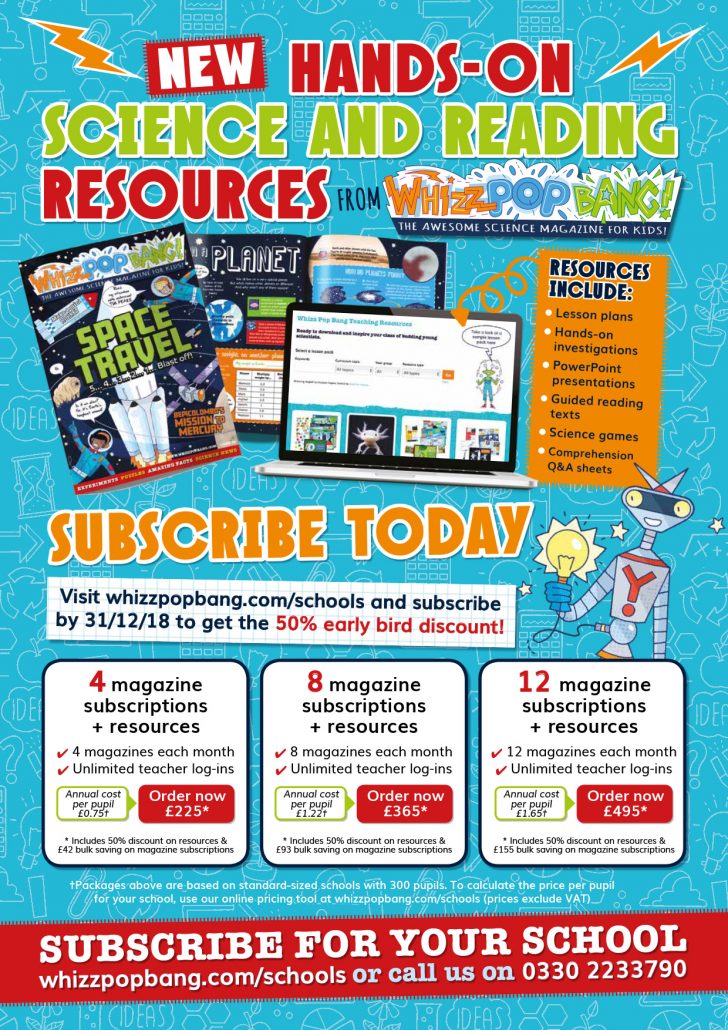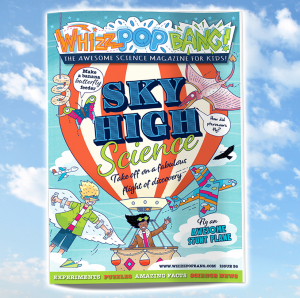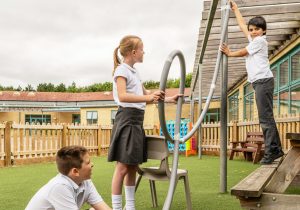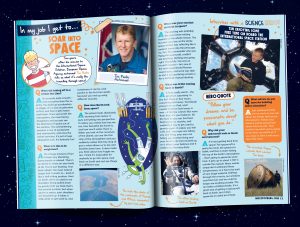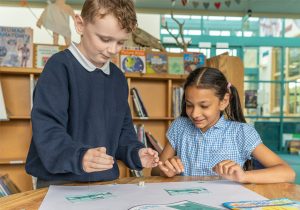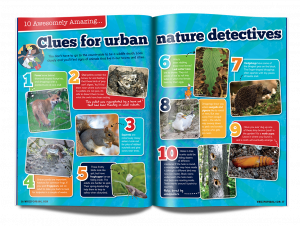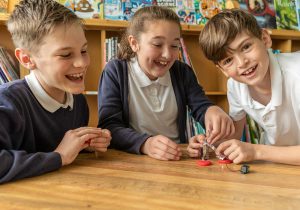
The new Ofsted framework comes into place from September 2019. Its focus is on ensuring that primary schools are delivering a well-rounded education across the whole of the primary curriculum. This is an exciting time for science and all other non-assessed primary subjects as it shifts some of the focus away from maths and literacy.
To help schools prepare for the changes, we’ve got some top tips on how Whizz Pop Bang’s new primary science and reading resources can help deliver a cross-curricular approach in your school.
Below are some of the key requirements from the new Ofsted framework…
- “Learners study the full curriculum. Providers ensure this by teaching a full range of subjects for as long as possible, ‘specialising’ only when necessary.”
During their top-level view, headteachers will be asked to explain how their curriculum is implemented and inspectors will explore what is on offer to students. As they start to deep dive into science, they will want to see a sequence of lessons, scrutinize books and talk to pupils. They will be checking for coverage but more importantly that pupils learn and remember. - “Coverage is a prerequisite for learning, but simply having covered a part of the curriculum does not in itself indicate that pupils know or remember more.”
Here at Whizz Pop Bang our aim is to put the Whizz, Pop and Bang into science and topic lessons in primary schools. We create lessons that are fun, easy to teach and therefore memorable for pupils and teachers alike (in a good way!).
Kids love our hands-on experiments; making exploding rockets, growing mould and testing out cool paper planes, making recycling machines and finding out why things float… trying out experiments that fail and learning from trying again. Subscribe to Whizz Pop Bang for your school to access over 100 tried and tested science resources, with more added every month to keep science teaching fresh and topical. - “The resources and materials that teachers select – in a way that does not create unnecessary workload for staff – reflect the provider’s ambitious intentions for the course of study and clearly support the intent of a coherently planned curriculum…” The Whizz Pop Bang ten-minute spectacular science PowerPoints are designed to get a scientific discussion going in the classroom. These enable teachers to share deeper science topics into their lessons, with questions and answers included in the PowerPoint so teachers don’t have to spend time researching them. Our primary school resources have clear links to the science and reading curricula, they are of high quality and require minimal resources, helping to reduce teacher workload without skimping on the quality of the lesson and pupil’s learning.
- “Teachers have good knowledge of the subject(s) and courses they teach. Leaders provide effective support for those teaching outside their main areas of expertise…” We know that not all teachers are science specialists, so with this in mind we include an age-appropriate scientific explanation on every lesson plan, with scientific terminology to expand children’s vocabulary. This increases teacher’s confidence and adds extra support for primary school teachers.
- “Teachers present subject matter clearly, promoting appropriate discussion about the subject matter they are teaching.”
Our reading resources are taken from all issues of Whizz Pop Bang magazine and cover many different non-fiction genres (interviews, non-chronological reports, historical biographies, explanation texts and instructions), helping teachers to make cross-curricular links and promote relevant and thought-provoking discussions with pupils. - “In primary schools, inspectors will always carry out a deep dive in reading…”
Teachers love our reading resources as the content is current, inspiring and relevant, and linked to the reading curriculum. Teachers can download and print as many texts as required, allowing whole class reading or group reading. Our questions sheets relate to the reading curriculum and are differentiated. In all texts we help pupils to pronounce scientific words by breaking them down phonetically. - “A rigorous approach to the teaching of reading develops learners’ confidence and enjoyment in reading. At the early stages of learning to read, reading materials are closely matched to learners’ phonics knowledge.”
We offer a unique resource for schools, with new science and reading resources available every month to accompany each new issue of Whizz Pop Bang magazine. Each issue is themed, which links well with topic-based learning in schools, as well as seasons and events.
Read the full Ofsted framework report here.
A subscription to Whizz Pop Bang magazine and resources is the perfect way to enhance your school’s curriculum, and meet key elements of Ofsted’s new guidelines.
Subscribe to Whizz Pop Bang for your school for:
- Inspirational and topical science magazines delivered each month
- Unlimited teacher log-ins to access downloadable science and reading resources
- Prices from just £190 for the entire year
Visit our dedicated schools page, call us on 0330 2233 790 or email schools@whizzpopbang.com. Together we can inspire the scientists of the future!

